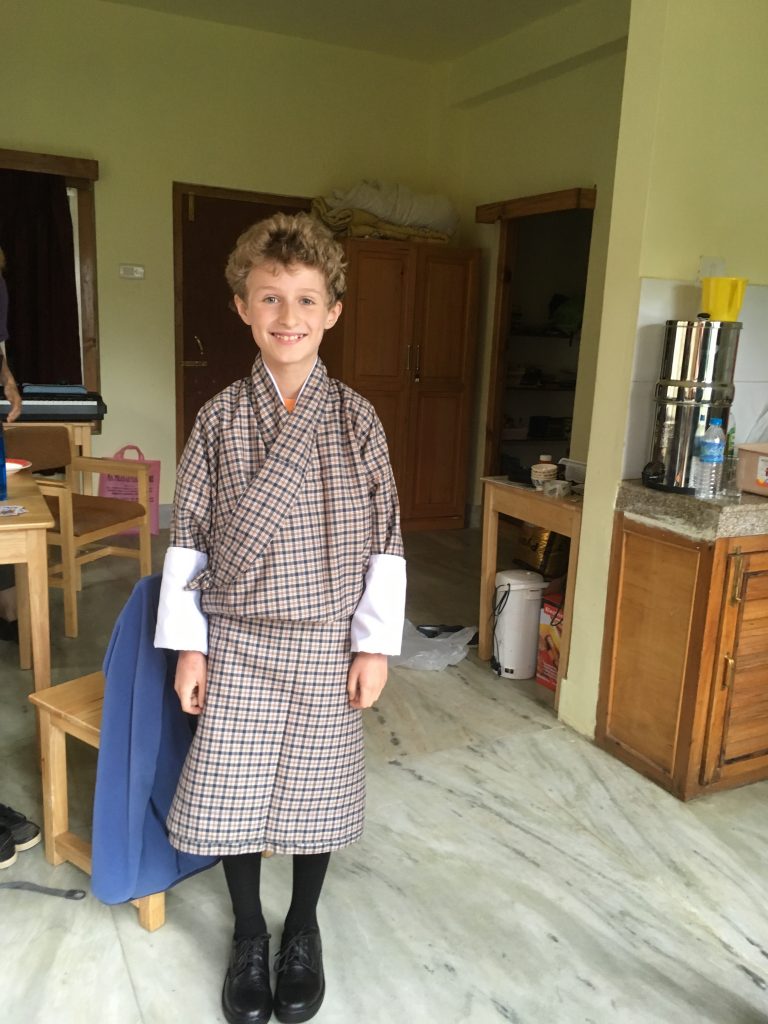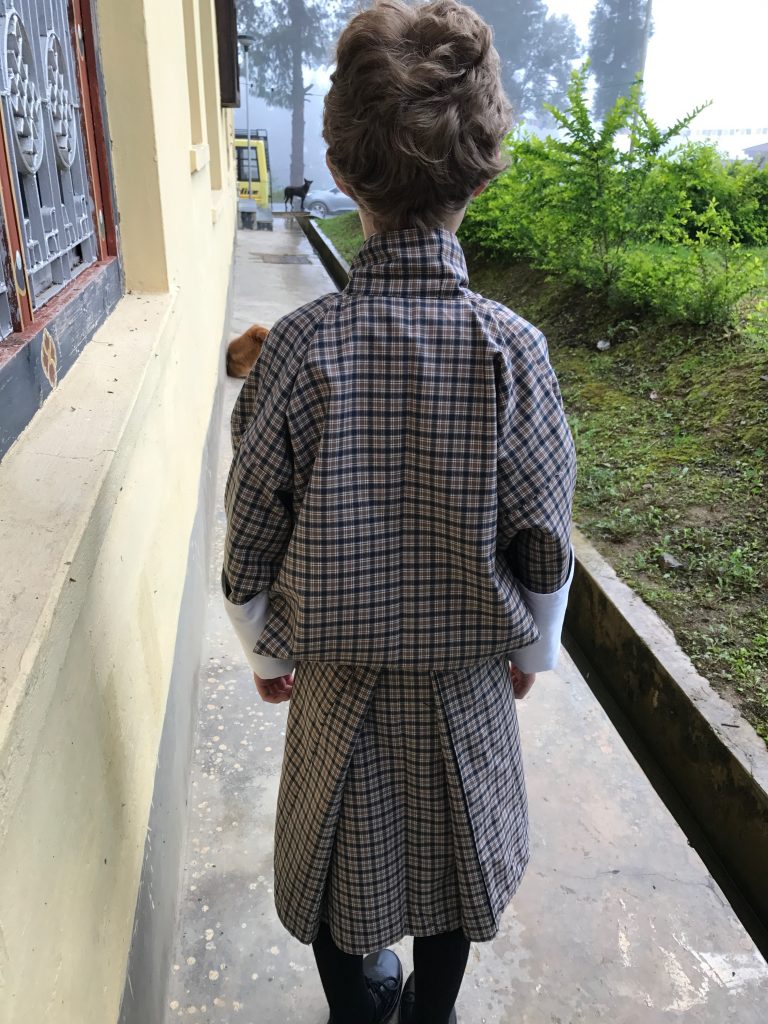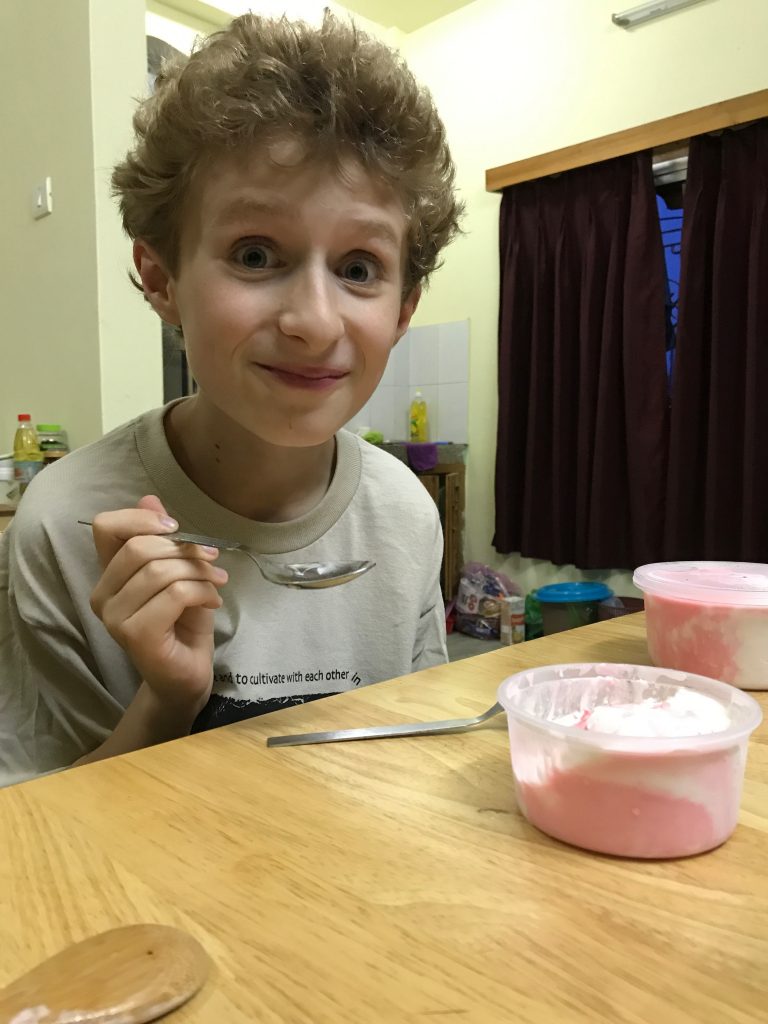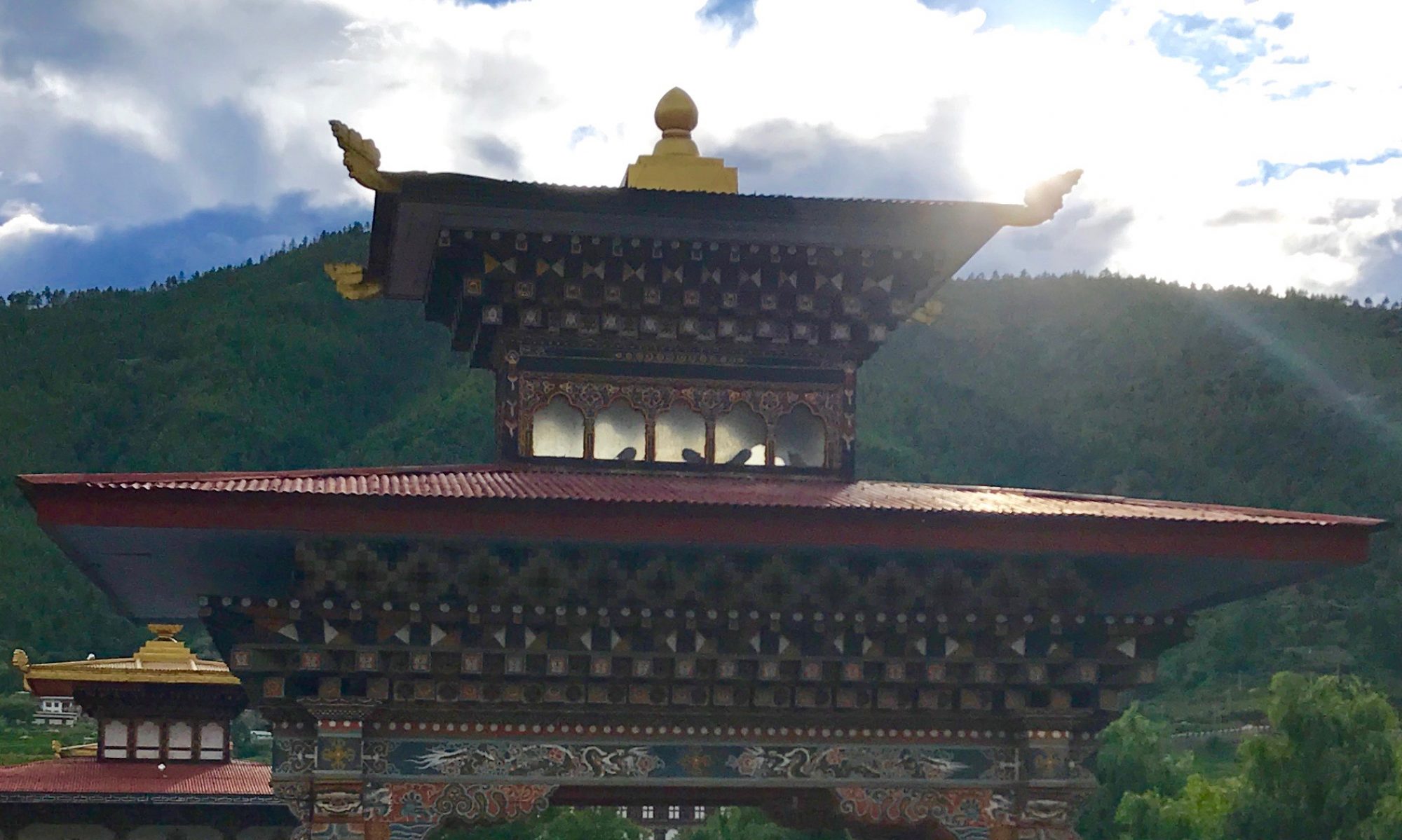“How many PhDs does it take to tie a gho?”
“More than we have,” says Jeremy a little glumly.
James watched a video to learn how to help Jeremy get dressed in the morning. We think he looks great! Unfortunately, it turns out that Wednesday as well as Saturday is a day when the children wear non-uniform clothing, so he stood out more than he would have liked.


The pleat at the back is one sign of prowess in adjusting a gho. The baggy space at the front is known as a “Bhutanese pocket.”
This is also the first day of my “South Asian Literature” class. I list out the nations of South Asia, highlight the four whose literature we will consider, however briefly (Pakistan, India, Afghanistan—I throw in Bhutan for good measure), and then ask my students to gather in small groups to brainstorm and then present the history and culture of each nation. After all, I explain, as members of a South Asian nation, they undoubtedly know this history better than I do.
Certainly, as veteran teachers, they are comfortable presenting: more comfortable on their feet than sitting at their tables, most probably. The presentation on Bhutan runs long, predictably: of course they know all too much about their own history. Their sense of Indian history is a little sketchy, but Indian patronage helps Bhutan run, so they are at least sympathetic to the culture. Then came time for the presentation on Pakistan. “Pakistan is Muslim,” stated the presenter, “which is a religion with the goal of world domination.” I sat up a little straighter. “Err.” “May I finish?” he asked. “OK,” I say, hoping for some moderation. “As a nation,” he continued, “Pakistan is a harbor for terrorism.” “Wait, wait,” I said. (I should have seen this coming. During their group preparation time, I had visited around the different groups. “Do we call Pakistan a terrorist nation?” this presenter had asked me. “I certainly don’t,” I replied, wondering whether this was a question about my American views—but no, it was home-grown anti-Islamic sentiment.) “Who can tell me the pillars of Islam?” I asked. No one could. I went through as many comparisons as I could on the fly: Salat. Praying five times a day means that Muslims are very mindful people, repeatedly called to remember matters of spirit. Buddhists value mindfulness also. Giving is central to both Islam and Buddhism—one of the pillars of Islam, one of the perfections of Buddhism. Fasting in Islam might be compared to Buddhist prohibitions on the killing of animals for food, a way of using food practices to increase mindfulness. Practitioners of Islam and Buddhism both use pilgrimage as a way of deepening faith.
“I am on the wrong path, then,” said my presenter. The class giggled. “Yes!” I said, and he smiled as the class burst into laughter. I am hoping the poetry we are about to read will help to humanize both nation and religion for these students. Then came the Afghanistan group. “We know less about Afghanistan than about any of these countries,” the presenter began. So much for my presumption of regional expertise. Time for me to read up on my history.
Jeremy comes home with a mixed report:
The teachers only come for 10 minutes of each 40 minute class.
There’s a secret hiding place in our desks for gum. There’s a big box of gum, so we each get a piece every day and we chew away and then a teacher comes and we have to (freezes face) pretend we don’t have any gum.
I found out what washing and cleaning is: we’re not cleaning ourselves, we’re cleaning the school. That means we get some sticks and knives and go cut grass and things.
I have three friends: Kaka, CTC, and the giant. She’s so big! Taller than you! They’re all at my work table.
We have to keep track of our reading and note it all down. It’s a contest. I don’t like reading contests because when you’re trying to read a lot of books, you lose the comprehension.
“You don’t have to compete,” I note.
Oh, yeah, yeah. Whoever reads the most books goes to a special study session, and three quarters of the class doesn’t want to go. For instance, no one at my work table wants to go, not even the giant, and she’s generally pretty studious.
To celebrate the first day of school, I buy all of us some ice cream at the canteen.

Jeremy is excited at the prospect, but the “cream” part of the ice cream is definitely a “food-like substance” and none of us really want to eat it. (The ice cream lasts in the freezer for weeks: I finally dump it in order to use the containers for left-overs.)
